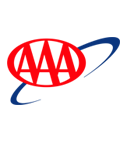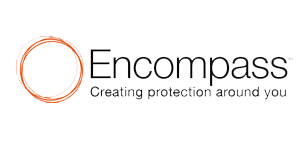Sources:
http://www.dmv.org/insurance/common-mistakes-when-shopping-for-insurance.php
http://www.insure.com/car-insurance/5-auto-questions.html
When it comes to choosing a car insurance policy, many of us let premium price drive our decisions. But cutting corners on cost could leave you underinsured and overexposed to the risks of the road.
Fortunately, it’s easy to strike a balance between affordability and adequate coverage when you have the right information.1 Remember: your insurance representative is a valuable resource. Asking these five questions before you purchase a car policy can help you get the protection you need at a price you decide is right for you.2
1. Do I Have All the Coverage I Need?
This first answer to this question will depend on the state where you live. At a minimum, most states require liability insurance, which covers the cost of accident-related injury, death, vehicle damage, property damage and legal fees.
Once the minimum requirements are met, ask your insurance rep to explain and recommend additional coverage options best suited for your individual needs. These commonly include collision, comprehensive, uninsured and underinsurance motorist protection (UM/UIM). Your rep should also explain how each will affect your premium and “out-of-pocket” expenses after an accident.
If you have a lot of personal assets to protect, you may also want to discuss excess liability insurance with your insurance rep. This is a separate, personal liability policy that can kick in to cover costs where your car (or homeowners) insurance leaves off.
2. Am I Getting All the Discounts and Savings I Can?
The cost of insurance partly depends on the coverages, deductibles and policy limits you choose. It is also based on your “risk rating” — a calculation used to determine the likelihood that you will be making a claim in the future. Factors such as the age, gender, driving record, insurance score and garaging location of the vehicles on your policy will largely determine the price of your premium.
While there is not much wiggle room to affect your risk rating and its effect on the price of your policy premium, there are many discounts designed to help lower premiums.
Savings are commonly found in safe driver, continuous insurance, multi-policy, multi-car and good student discounts for those who qualify. Additional discounts may be available if you are insuring a new or hybrid/electric car, or own a home. How and when you pay can affect your premium, too. Your insurance company may offer discounts if you pay in full, by electronic funds transfer (EFT) or by payroll deduction, as well as if you pay on time.
Ask your insurance rep to ensure you are getting all the discounts for which you are eligible.

3. What Is Covered if My Car Is in an Accident or Gets Damaged?
It is a popular misconception that car insurance will automatically cover the replacement or repair of your car, as well as towing or rental car fees, after an accident. The reality is, without the right coverages, you may not have these benefits.
Liability insurance typically pays for damage to another driver’s vehicle or someone else’s property if you cause an accident, and is the minimum coverage required in most states. To cover repair and replacement of your own car, you will need collision coverage for accident-related damage and comprehensive coverage for non-accident incidents, such as theft, vandalism, hitting an animal or storm damage.
Be sure to ask your insurance rep whether optional coverages like roadside assistance and rental reimbursement are right for you.
Another important coverage to discuss with your rep is uninsured/underinsured motorist insurance, which can help pay for damages and medical expenses if you get hit by a driver who has no insurance or inadequate coverage.
If you have a lease or loan on your car, ask your insurance rep about gap insurance, too. This coverage may pay the difference between what your car is worth and what you still owe on it if your car is totaled.
4. What is Covered if My Car Is in an Accident and Someone Is Injured or Dies?
Protecting drivers, passengers and pedestrians who are injured — or worse — in an accident is a top priority. That’s why bodily injury liability insurance is the most important auto coverage a driver can have, covering accident-related expenses such as hospital and medical bills, lost wages, rehabilitation and legal fees.
While bodily injury liability insurance is a requirement in most states, the minimum level of coverage may not offer adequate protection. Discuss policy limits with your insurance rep before purchasing car insurance. Remember: you will be personally responsible to cover any costs above this limit.
Ask your insurance rep to help you determine your need for additional coverage options and protections, too. Depending on where you live, these can include:
- Personal injury protection.
- Medical payments coverage.
- Uninsured/underinsured motorist coverage.
- Total disability.
- Work/income loss coverage.
- Accidental death benefits.
- Funeral expense coverage.
- First party benefits.
5. What Costs Will I Need to Cover “Out-of-Pocket” if I Am in an Accident?
How much you will pay out-of-pocket for accident-related expenses depends on your policy limits, coverages and deductibles, as well as the specific circumstances of the incident.
If you did not cause the accident, the driver who did — and his or her insurance company — is typically responsible to pay for any resulting damages or injury. However, if the at-fault driver has no insurance or is underinsured, you may be left holding the bill. Ask your insurance rep what you can do to ensure your policy will protect you in this situation, such as adding collision or uninsured/underinsured motorist coverage.
If you are at fault for an accident, your insurance typically provides coverage for repairs, medical, legal and other related expenses up to your policy limits once you pay your deductibles. For example, let’s say your car is damaged in a covered accident you caused, you have collision coverage with a policy limit of up to $10,000 and your deductible is $2,000. If the cost to repair your car is $1,500, you will pay the entire $1,500 since it is less than your deductible. If the cost to repair your car is $8,000, you will pay your deductible of $2,000 and your insurer will pay the remaining $6,000. If the cost to repair your car is $12,000, you will pay $4,000 (your deductible, plus the $2,000 above your policy limit) and your insurer will pay $8,000.
To keep monthly premiums low, drivers often opt for higher deductibles and lower policy limits. But if you can’t pay your deductible or accident-related expenses above and beyond your policy limits, you may find yourself in financial crisis. Before purchasing any policy, have your insurance rep go over all the scenarios with you. Work together to create a policy that balances your individual needs with a premium, deductible and policy limit you can afford.





